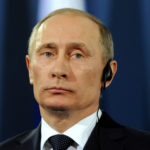Poland is under attack. Almost all of the one hundred US senators have signed a letter to Secretary of State Michael Pompeo in which they urge him to cause the US government to “help Poland to resolve this issue as quickly as possible.” What is the issue? How does the United States want to help Poland? Do the senators want to implement a belated Marshall, whose benefits were reaped by Western Europe in the aftermath of the Second World War, plan to boost Polish economy as a kind of compensation for the 1945 Yalta Agreements within the framework of which it sold Poland to the Soviet sphere of interests? Or maybe the senators want to render military assistance against Russia by injecting the Polish budget with finances enabling her to purchase up-to-date equipment and thus upgrade her army? Or maybe they urge the Secretary of State to lift from the Polish citizens – representatives of an allied nation – the obligation of having to apply for a visa if they want to travel to the United States?
None of these. The letter addressed to Michael Pompeo has been written to “encourage him to pursue bold initiatives” to… strip Poland of a huge amount of property and transfer it to Jews – you guessed it right: holocaust survivors – and Jewish organizations. What property? Anything owned by the Jews before 1945, and even afterwards, by the Jews who were at that time Polish citizens. Anything irrespective of the fact whether there are heirs to the property or not. Polish courts honour the documented claims submitted by rightful heirs, but that is not what is meant by S.447 – Justice for Uncompensated Survivors Today (JUST) Act of 2017, where we read that “in the case of heirless property, the provision of property or compensation” should nevertheless be demanded “to assist needy Holocaust survivors, Holocaust education, and for other purposes”. The document also stipulates that also “wrongfully seized or transferred” property be returned to individual Jews or Jewish organizations, where the term “wrongfully seized or transferred includes confiscations, expropriations, nationalizations, forced sales or transfers, and sales or transfers under duress during the Holocaust era or the period of Communist rule.”
There are two things that hit straight in the eye. First, the tribal or racial approach to the problem. It is Jews as a tribe that must be compensated for. It does not matter whether a property has a documented heir or not, nor does it matter that at the time when Jews were owners they were all Polish citizens to the man, which under any system of law means that heirless property is taken over by the state. Second, “wrongfully seized or transferred” property during “the period of Communist rule” refers to the years following the Second World War, a time when Poland was ruled by a communist party which carried out “confiscations, expropriations, nationalizations, forced sales or transfers” of all kinds of means of production and other property and these acts were implemented for the most part by Polish Jews who staffed – at times – the majority or near-majority of the decision-making levels of government, the communist party and law enforcement. What chutzpah! Continue reading

















